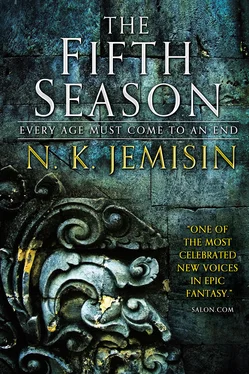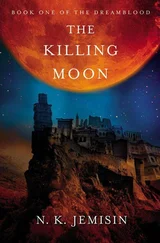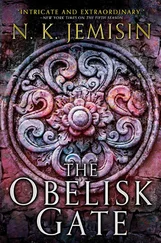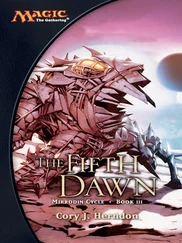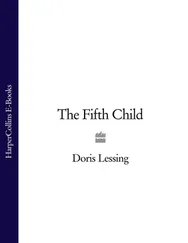Damaya squirms a little, unwilling to accept this. He sighs. “And sometimes,” he continues, “the parents of an orogene will try to hide the child. To keep her, untrained and without a Guardian. That always goes badly.”
This is the thing that’s been in her mind for the past two weeks, ever since that day at school. If her parents loved her, they would not have locked her in the barn. They would not have called this man. Mother would not have said those terrible things.
“Why can’t they—” she blurts, before she realizes he has said this on purpose. To see if why can’t they just hide me and keep me here is something she’s been thinking — and now he knows the truth. Damaya’s hands clench on the cape where she’s holding it closed around herself, but Schaffa merely nods.
“First because they have another child, and anyone caught harboring an unregistered orogene is ejected from their comm as a minimum punishment.” Damaya knows this, though she resents the knowledge. Parents who cared about her would risk, wouldn’t they? “Your parents could not have wanted to lose their home, their livelihood, and custody of both their children. They chose to keep something rather than lose everything. But the greatest danger lies in what you are, Dama. You can no more hide that than you can the fact that you are female, or your clever young mind.” She blushes, unsure if this is praise. He smiles so she knows it is.
He continues: “Every time the earth moves, you will hear its call. In every moment of danger you will reach, instinctively, for the nearest source of warmth and movement. The ability to do this is, to you, as fists are to a strong man. When a threat is imminent, of course you’ll do what you must to protect yourself. And when you do, people will die.”
Damaya flinches. Schaffa smiles again, as kindly as always. And then Damaya thinks about that day.
It was after lunch, in the play-yard. She had eaten her bean roll while sitting by the pond with Limi and Shantare as she usually did while the other children played or threw food at each other. Some of the other kids were huddled in a corner of the yard, scratching in the dirt and muttering to each other; they had a geomestry test that afternoon. And then Zab had come over to the three of them, though he’d looked at Damaya in particular as he said, “Let me cheat off you.”
Limi giggled. She thought Zab liked Damaya. Damaya didn’t like him, though, because he was awful — always picking on Damaya, calling her names, poking her until she yelled at him to stop and got in trouble with their teacher for doing it. So she said to Zab, “I’m not getting in trouble for you.”
He’d said: “You won’t, if you do it right. Just move your paper over—”
“ No, ” she’d said again. “I’m not going to do it right. I’m not going to do it at all . Go away.” She’d turned back to Shantare, who had been talking before Zab interrupted.
Next thing Damaya knew, she was on the ground. Zab had shoved her off the rock using both hands. She tumbled head over heels literally, landing on her back. Later — she’d had two weeks in the barn to think about it — she would recall the look of shock on his face, as if he hadn’t realized she would go over so easily. But at the time, all she had known was that she was on the ground. The muddy ground. Her whole back was cold and wet and foul, everything smelled of fermenting bog and crushed grass, it was in her hair and this was her best uniform and Mother was going to be furious and she was furious and so she’d grabbed the air and—
Damaya shivers. People will die . Schaffa nods as if he has heard this thought.
“You’re firemountain-glass, Dama.” He says this very softly. “You’re a gift of the earth — but Father Earth hates us, never forget, and his gifts are neither free nor safe. If we pick you up, hone you to sharpness, treat you with the care and respect you deserve, then you become valuable. But if we just leave you lying about, you’ll cut to the bone the first person who blunders across you. Or worse — you’ll shatter, and hurt many.”
Damaya remembers the look on Zab’s face. The air had gone cold for only an instant, billowing around her like a burst balloon. That was enough to make a crust of ice on the grass beneath her, and to make the sweatdrops go solid on Zab’s skin. They’d stopped and jerked and stared at each other.
She remembers his face. You almost killed me, she had seen there.
Schaffa, watching her closely, has never stopped smiling.
“It isn’t your fault,” he says. “Most of what they say about orogenes isn’t true. There’s nothing you did to be born like this, nothing your parents did. Don’t be angry with them, or with yourself.”
She begins to cry, because he’s right. All of it, everything he says, it’s right. She hates Mother for putting her in here, she’s hated Father and Chaga for letting Mother do it, she hates herself for being born as she is and disappointing them all. And now Schaffa knows just how weak and terrible she is.
“Shh,” he says, standing and coming over to her. He kneels and takes her hands; she starts crying harder. But Schaffa squeezes her hands sharply, enough to hurt, and she starts and draws breath and blinks at him through the blur. “You mustn’t, little one. Your mother will return soon. Never cry where they can see you.”
“Wh-what?”
He looks so sad — for Damaya? — as he reaches up and cups her cheek. “It isn’t safe.”
She has no idea what this means.
Regardless, she stops. Once she’s wiped her cheeks, he thumbs away a tear that she’s missed, then nods after a quick inspection. “Your mother will probably be able to tell, but that should do for everyone else.”
The barn door creaks and Mother is back, this time with Father in tow. Father’s jaw is tight, and he doesn’t look at Damaya even though he hasn’t seen her since Mother put her in the barn. Both of them focus on Schaffa, who stands and moves a little in front of Damaya, nodding thanks as he accepts the folded blanket and twine-wrapped parcel that Mother gives him.
“We’ve watered your horse,” Father says, stiffly. “You want provender to carry?”
“No need,” says Schaffa. “If we make good time, we should reach Brevard just after nightfall.”
Father frowns. “A hard ride.”
“Yes. But in Brevard, no one from this village will get the fine idea to come seek us out along the road, and make their farewells to Damaya in a ruder fashion.”
It takes a moment for Damaya to understand, and then she realizes: People from Palela want to kill Damaya. But that’s wrong, isn’t it? They can’t really, can they? She thinks of all the people she knows. The teachers from creche. The other children. The old ladies at the roadhouse who used to be friends with Muh before she died.
Father thinks this, too; she can see that in his face, and he frowns and opens his mouth to say what she’s thinking: They wouldn’t do something like that . But he stops before the words leave his mouth. He glances at Damaya, once and with his face full of anguish, before remembering to look away again.
“Here you are,” Schaffa says to Damaya, holding out the blanket. It’s Muh’s. She stares at it, then looks at Mother, but Mother won’t look back.
It isn’t safe to cry. Even when she pulls off Schaffa’s cloak and he wraps the blanket around her instead, familiar-fusty and scratchy and perfect, she keeps her face completely still. Schaffa’s eyes flick to hers; he nods, just a little, in approval. Then he takes her hand and leads her toward the barn door.
Mother and Father follow, but they don’t say anything. Damaya doesn’t say anything. She does glance at the house once, catching a glimpse of someone through a gap in the curtains before the curtains flick shut. Chaga, her big brother, who taught her how to read and how to ride a donkey and how to skip rocks on a pond. He doesn’t even wave goodbye… but this is not because he hates her. She sees that, now.
Читать дальше
